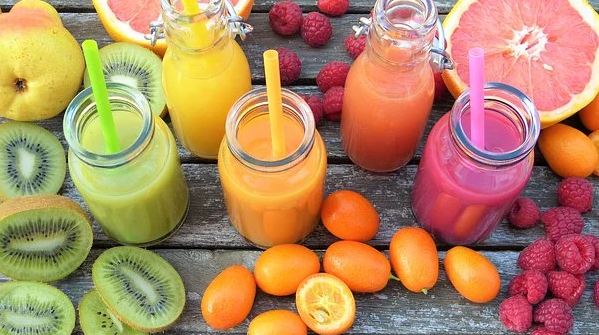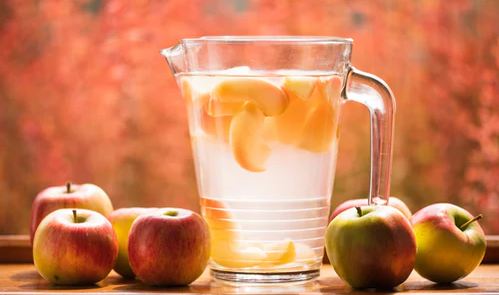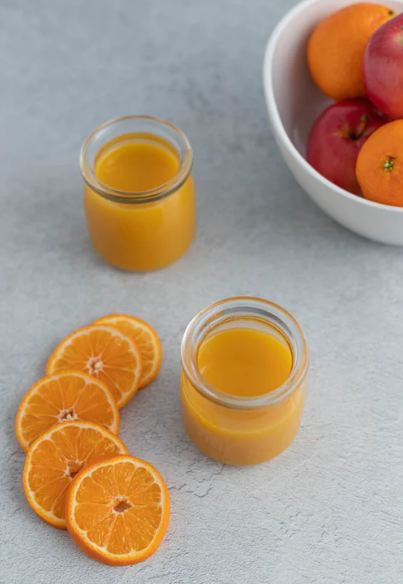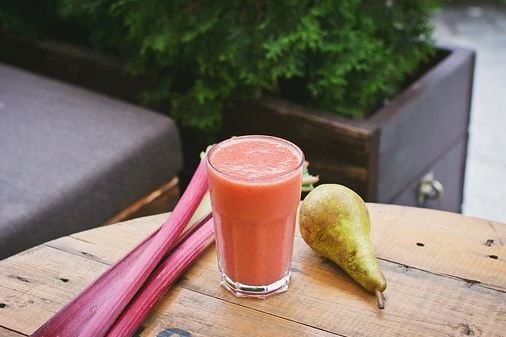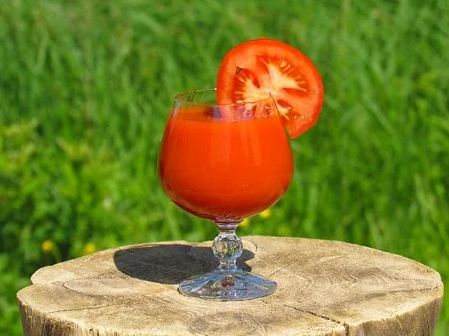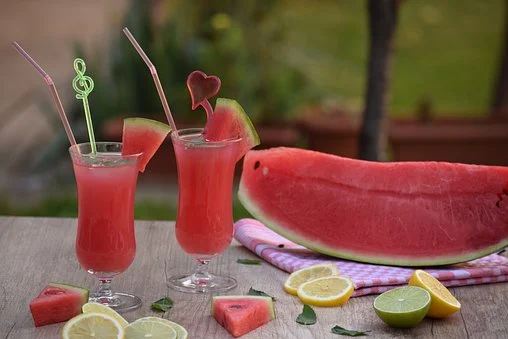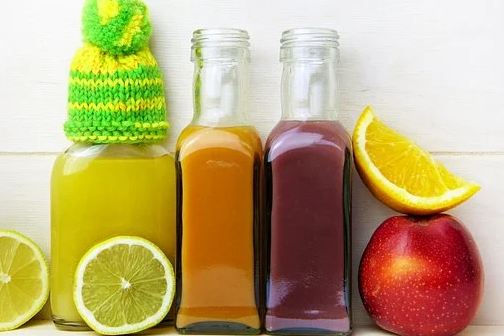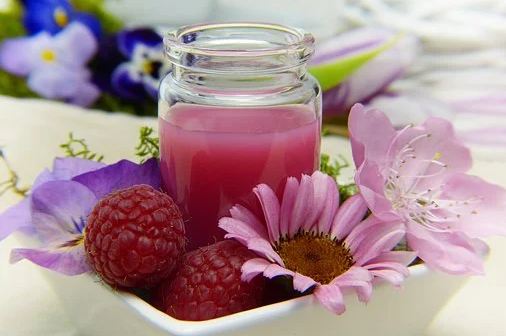Introducing your child to a diverse diet in the early stages is often a challenge for parents. The transition from breast milk to solid is not easy and can often prove to be difficult for many children. A great way to introduce your toddler to a whole new array of flavors is through fruit pulps and fruit juices.
They taste delicious and are packed with nutrition, serving as a natural source of vitamins and some minerals necessary for a balanced diet. So what are the bestfruit juices for your babies and toddlers? To find out, let’s have a look at the section below.
5 Best Fruit Juices For Babies and Toddlers
While all fruits, in general, are healthy and can make great juices, below are some of the most popular and healthy picks for children!
Apple Juice
Like an apple a day keeps the doctor away, apple juice also keeps your child healthy and boosts its immune system. Vitamin C and dietary fiber found in high amounts in apple juice protect your toddler against cold and prevent constipation. It is also rich with antioxidants that flush out the toxins from your baby’s body. Doctors often recommend Apple juice for children as it is mild on the stomach and has a very low-calorie count.
Orange Juice
Just like other citrus fruits, oranges, too, are loaded with various vitamins and minerals, especially Vitamin C and Vitamin B.
Vitamin C strengthens the immune system against any infections, while Vitamin B promotes a healthy-functioning nervous and digestive system. Orange juice also has a high amount of citric acid, which, together with Vitamin C, prevents kidney stones and increases iron absorption from the digestive tract. Moreover, the bright color of orange juice attracts toddlers.
Pear Juice
Pears have significant levels of immunity-boosting vitamins and minerals. These include Vitamin C, Vitamin K, provitamin A, dietary fiber, potassium, and copper.
Provitamin A simulates wound healing and skin health. Potassium promotes immunity and cholesterol metabolism, while copper assists heart function and muscle contraction. Pear juice is a pediatrician’s top choice for treating constipation as the fibers present in pears improve bowel movement by softening the stool.
Tomato Juice
This colorful drink is a must for growing children. Tomato juice is not only nutrient-rich but also low in calories and fat. One glass of tomato juice is enough to fulfill your daily recommended Vitamin C intake. It is also bursting with vitamins K, B, and minerals, including potassium, iron, and magnesium. Antioxidants found in tomato juice fight off any free radicals in your baby’s body that might cause damage to cells. It is also fiber-rich, making it a mild laxative that can improve bowel movement and keep constipation at bay. Tomatoes also come with chemical compounds that boost eye-health and lower the risk of heart diseases.
Watermelon Juice
Watermelons are an excellent source of a wide variety of vitamins and antioxidants. Watermelon juice is just as healthy as a whole fruit. It is low in calories and has 0 cholesterol, with a myriad of health benefits. Drinking watermelon juice increases your baby’s metabolism, detoxes his body, helps fluid management avoid swelling, and wards off bloating. Vitamin C also has healing properties that help skin recover from wounds faster and relieve muscle soreness.
Watermelon fruit juice is also rich in Vitamin A, which prevents eye disorders, protects the surface of your eye, and promotes better vision. The health benefits of this juice do not end here! It also keeps your baby hydrated and fresh.
Some Tips For Giving Fruit Juices to Babies and Toddlers
The following tips and tricks can help adjust your child to fruit juices.
Make Sure The Consumption is Controlled
Excessive intake of fruit juices can be detrimental to the health of your child. Therefore, it is necessary to ensure that your child drinks the right amount of fruit juice every day. According to the American Academy of Pediatrics, parents should not give more than 4 ounces of fruit juice per day to children aged 1-4. On the other hand, growing children require four servings of fruit daily, and only one of these four servings should come from juices.
Start With Only One Fruit
Instead of trying to force-feed a different fruit juice to your toddler every day, begin with a single fruit so that their stomach can get used to it. Pear and apple are good choices for introducing your toddler to fruit juices. Boil the fruit or vegetable first and avoid giving raw juice to your baby. Also, observe their reactions closely to make sure they are not allergic. In case the toddler develops a rash or shows any other symptom of allergy, stop feeding the juice at once and visit a pediatrician.
Dilute the Juice with Water
Water down the juice so that they are not overwhelmed with the new flavors. Start with 1 part juice to 10 parts water. Once they have developed a liking to it, you can gradually increase the proportion of juice.
Choose the Right Size of Cup
When giving your toddler juice, make sure he/she is sitting up and drinks it from an open-top cup. Avoid giving fruit juices in bottles or sippy cups that they can carry around and drink from all day long without your supervision. Prolonged exposure to high amounts of carbohydrates can prove damaging their teeth and lead to cavities.
Serve it with Regular Meals
The best and most efficient way of developing the habit of drinking juice in your child is to serve it with breakfast or lunch. Do not put water on the table during one of the meals. Your toddler will eventually take little sips of the juice while eating.
Read the Back of Processed Juices
Before buying a processed fruit juice, carefully read the ingredients at the back of the box. Many processed fruit juices have some chemical additives in them. Therefore, it is necessary to read its labels. Look for the fruit juice that is 100 percent pure, has no sugar, and is 100 percent pasteurized. The best-processed fruit juice will have the least amount of ingredients, and those ingredients will be easy to pronounce. Steer clear from any product that says fruit “drink,” “beverage,” “cocktail,” or “-ade.
When to Give Your Baby Fruit Juices?
‘When is it okay for babies to have fruit juices?’ Many parents are troubled by this question. Before 2017, it was recommended by the American Academy of Pediatrics that babies older than six months can have fruit juices; however, they have changed their guidelines since then. According to the new guidelines, babies should not be given fruit juices during the first year of life.
The diet of a baby younger than six months should only comprise of breast milk or infant formula as it contains all the necessary nutrients required for growth: proteins, fats, and minerals. Once they are six months of age, you can introduce fruits in their diet but not in the form of juice. Only give mashed or pureed fruits to babies during the first year.
The Takeaway
Fruit juices make a healthy and delicious addition to your child’s diet; however, you should not substitute whole fruits for fruit juices or exceed the daily limit for fruit juices. Make sure you don’t give babies under the age of one fruit juices without consulting your pediatrician. You can also use some vegetable juices or some DIY fruit juices recipe to make this experience more exciting for your toddler.

